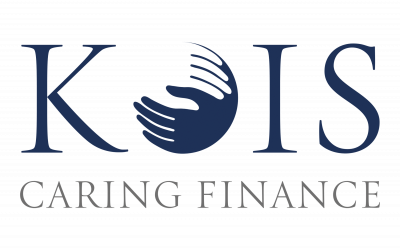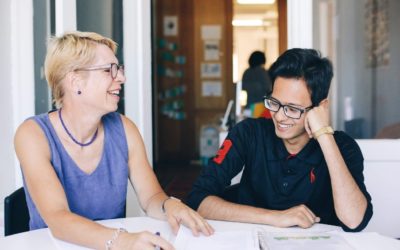Decreasing school dropout in underprivileged neighbourhoods across France
Project details
In France, about 100,000 students drop out of secondary school every year, leaving the education system without a diploma. This problem particularly affects schools located in underprivileged areas. Decreasing school dropout rates in these areas could have a major impact on the personal and professional development of the students. Consequently, a family foundation mandated KOIS to assess the feasibility of a Social Impact Bond in this context. The SIB would serve to finance the scale-up of a programme decreasing school dropout rates. The project does so by integrating the practice of a musical instrument into schools’ curriculum.School dropouts rates have a high human & societal costs
The gap between school leavers and the others starts to widen at a very early age. Indeed, 80% of the school dropouts were already facing learning difficulties in primary school. Eventually, they left primary education with an insufficient mastery of basic skills. However, primary education has a great impact on children’s development. For instance, a child’s reading ability is deeply linked to a their language repertoire. Studies have shown that at 3 years old, a child from a disadvantaged background knows no more than 500. On the other end, a child from a priviledged area already uses more than 1000.
In addition to causing education and employment issues later on, this discrepancy also comes at a high societal cost. In 2012, the total cost of a school dropout for the French society was around €230,000. Studies have also demonstrated that by investing 1€ in early childhood, we can avoid spending up to 8€ later on education, security, justice or social services. To achieve this, early identification of at-risk students is key.
Using music to bridge the gap
In 2014, the French Ministry of Education implemented a comprehensive programme to decrease school dropout rates. The programme covered three main components: prevention, support and remediation. However, only a few initiatives are focusing on prevention and early childhood (3 to 8 years old).
In this context, a family Foundation designed a unique programme aiming to decrease school dropout rates in underprivileged areas. Their programme does so by integrating the practice of a musical instrument into schools’ curriculum.
This four-year programme is based on the strong belief that brain connections created before the age of 8 years old are acquired for life. It aims to contribute to develop their cognitive (e.g. reading, concentration, memory, etc.) and non-cognitive skills (e.g. self-esteem, interpersonal relationships, perseverance, etc.). Eventually, the hope is to use these skills in order to increase their performance at school.
A Social Impact Bond to prevent school dropouts
In 2019, KOIS was mandated to assess the feasibility of launching a Social Impact Bond to finance the scale-up of this programme. The SIB would focus specifically on priority education schools in Val d’Oise, a French Department in Ile-de-France. The study demonstrated that a SIB could indeed serve to demonstrate the impact of this programme. The impact would be measured both on children’s cognitive and non-cognitive skills, as well as on their performance at school. The aim would be that the results allow the programme’s replication by the French Ministry of Education on a national scale. Through this significant scale-up, the foundation hopes to help decrease school dropout on a larger scale.
Potential Impact of a SIB
Discover our other projects
Impact Expansion: investing to tackle social exclusion, healthcare challenges and climate change in Europe
Impact Expansion was founded in 2022 through a covenant of partners from KOIS and Milestone. On the strength of their expertise in impact investing with a strong buy-and-build track record, the fund invests in companies during their growth stage in 3 focus sectors: Healthcare, Education & Employment, and Environment.
Club deals: since its inception, KOIS has initiated and managed a number of impactful club deals
KOIS and Quadria capital co-founded HealthQuad in 2016. Since then,
HealthQuad has become India’s leading Healthcare Focused Venture Capital Fund. The fund typically invests in early stage companies with a high disruption potential in the healthcare industry. HealthQuad aims to contribute to improving affordability, accessibility and quality of healthcare services in India while generating attractive returns for investors.
Multi-country Social Outcomes Contracting to tackle unemployment in Europe
European Union Member States have been confronted with the challenge of unemployment for several decades with relatively similar characteristics. Seeking innovative approaches to tackle this common issue, KOIS has supported the European Investment Advisory Hub (EIAH), in testing the preliminary feasibility of a Pan-European Social Outcomes Contracting (SOC) scheme. In this study, we explore the potential benefits and hurdles of a multi country Social Outcomes Contracting in three pilot countries, France, Belgium and the Netherlands.




